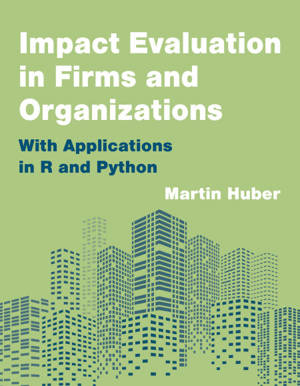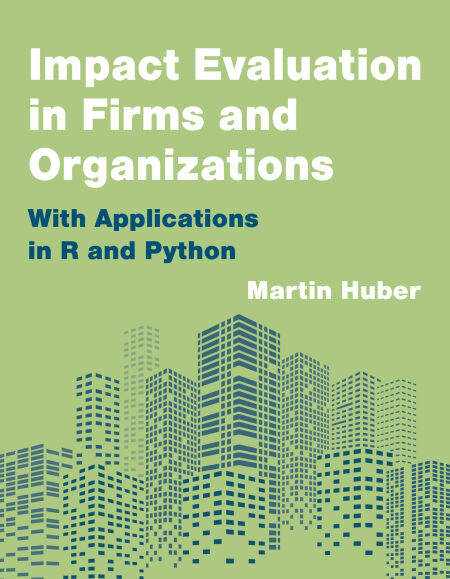
- Afhalen na 1 uur in een winkel met voorraad
- Gratis thuislevering in België vanaf € 30
- Ruim aanbod met 7 miljoen producten
- Afhalen na 1 uur in een winkel met voorraad
- Gratis thuislevering in België vanaf € 30
- Ruim aanbod met 7 miljoen producten
Zoeken
Impact Evaluation in Firms and Organizations E-BOOK
With Applications in R and Python
Martin Huber
E-book | Engels
€ 39,42
+ 39 punten
Omschrijving
A comprehensive, nontechnical guide to the methods of data-based impact evaluation in companies and organizations, with coverage of machine learning techniques.
In today's dynamic business climate, organizations face the constant challenge of making informed decisions about their interventions, from marketing campaigns and pricing strategies to employee training programs. In this practical textbook, Martin Huber provides a concise but comprehensive guide to quantitatively assessing the impact of such efforts, enabling decision-makers to make evidence-based choices.
The book introduces fundamental concepts, emphasizing the importance of causal analysis in understanding the true effects of interventions, before detailing a wide range of quantitative methods, including experimental and nonexperimental approaches. Huber then explores the integration of machine learning techniques for impact evaluation in the context of big data, sharing cutting-edge tools for data analysis. Centering real-world, global applications, this accessible text is an invaluable resource for anyone seeking to enhance their decision-making processes through data-driven insights.
Highlights the relevance of AI and equips readers to leverage advanced analytical techniques in the era of digital transformation Is ideal for introductory courses on impact evaluation or causal analysis Covers A/B testing, selection-on-observables, instrumental variables, regression discontinuity designs, and difference-in-differences Features extensive examples and demonstrations in R and Python Suits a wide audience, including business professionals and students with limited statistical expertise
In today's dynamic business climate, organizations face the constant challenge of making informed decisions about their interventions, from marketing campaigns and pricing strategies to employee training programs. In this practical textbook, Martin Huber provides a concise but comprehensive guide to quantitatively assessing the impact of such efforts, enabling decision-makers to make evidence-based choices.
The book introduces fundamental concepts, emphasizing the importance of causal analysis in understanding the true effects of interventions, before detailing a wide range of quantitative methods, including experimental and nonexperimental approaches. Huber then explores the integration of machine learning techniques for impact evaluation in the context of big data, sharing cutting-edge tools for data analysis. Centering real-world, global applications, this accessible text is an invaluable resource for anyone seeking to enhance their decision-making processes through data-driven insights.
Highlights the relevance of AI and equips readers to leverage advanced analytical techniques in the era of digital transformation Is ideal for introductory courses on impact evaluation or causal analysis Covers A/B testing, selection-on-observables, instrumental variables, regression discontinuity designs, and difference-in-differences Features extensive examples and demonstrations in R and Python Suits a wide audience, including business professionals and students with limited statistical expertise
Specificaties
Betrokkenen
- Auteur(s):
- Uitgeverij:
Inhoud
- Aantal bladzijden:
- 160
- Taal:
- Engels
Eigenschappen
- Productcode (EAN):
- 9780262383905
- Verschijningsdatum:
- 04/08/2025
- Uitvoering:
- E-book
- Beveiligd met:
- Adobe DRM
- Formaat:
- ePub

Alleen bij Standaard Boekhandel
+ 39 punten op je klantenkaart van Standaard Boekhandel
Beoordelingen
We publiceren alleen reviews die voldoen aan de voorwaarden voor reviews. Bekijk onze voorwaarden voor reviews.







